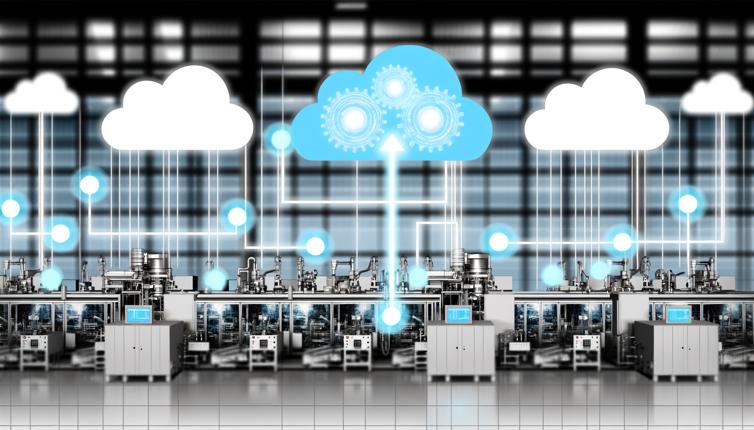The Role of Cloud Computing in Manufacturing
Cloud computing has emerged as a game-changer for the manufacturing industry. It allows manufacturers to store, manage, and analyze large amounts of data in a secure and scalable manner.,Manufacturers can leverage cloud-based technology to access real-time data from various sources, such as sensors, machines, and production systems. This data can be used to monitor operations, track performance, and identify bottlenecks or inefficiencies.,Cloud computing also enables manufacturers to collaborate and share data with suppliers, partners, and customers. This facilitates better communication, streamlined supply chains, and faster decision-making.,Cloud-based platforms and software applications provide manufacturers with advanced analytics and predictive modeling capabilities. These tools help in identifying trends, forecasting demand, optimizing inventory levels, and improving production planning.
Benefits of Cloud Computing in Manufacturing
Cloud computing offers several benefits to the manufacturing industry:,1. Increased Operational Efficiency: By centralizing data and streamlining processes, cloud computing improves operational efficiency. Manufacturers can automate routine tasks, reduce manual errors, and eliminate redundant data entry.,2. Enhanced Decision-Making: Real-time access to accurate and relevant data enables manufacturers to make informed decisions. Cloud-based analytics provide valuable insights into production performance, quality control, and supply chain management.,3. Scalability and Flexibility: Cloud computing allows manufacturers to scale their operations up or down as per demand. They can easily add or remove resources, such as computing power or storage, without incurring significant costs.,4. Cost Reduction: Cloud computing eliminates the need for upfront investments in hardware, software, and infrastructure. Manufacturers can pay for the resources they use on a subscription basis, resulting in cost savings.,5. Improved Collaboration: Cloud-based platforms enable seamless collaboration between different departments, teams, and external stakeholders. This promotes knowledge sharing, enhances productivity, and accelerates innovation.
Challenges and Considerations
While the adoption of cloud computing in manufacturing brings numerous benefits, it also poses certain challenges and considerations:,1. Data Security: Manufacturers need to ensure the security and privacy of their data when moving it to the cloud. Implementing robust security measures and encryption protocols is essential to protect sensitive information.,2. Connectivity and Reliability: Manufacturing operations rely heavily on uninterrupted connectivity to cloud services. Any disruptions in the network or cloud infrastructure can impact production and result in downtime.,3. Integration and Compatibility: Migrating existing systems and applications to the cloud can be complex. Compatibility issues and integration challenges may arise, requiring careful planning and execution.,4. Vendor Selection: Choosing a reliable and trustworthy cloud service provider is crucial. Manufacturers should evaluate factors like service-level agreements, data backup and recovery processes, and customer support.,5. Training and Change Management: Cloud adoption requires training employees and managing the change in processes and workflows. Manufacturers should invest in comprehensive training programs to ensure a smooth transition.
Conclusion
Cloud computing has transformed the manufacturing industry by empowering companies with data-driven insights and agility. It has become an integral part of digital transformation strategies for manufacturers worldwide. By harnessing the power of cloud computing, manufacturers can optimize operations, improve decision-making, and achieve sustainable growth.








